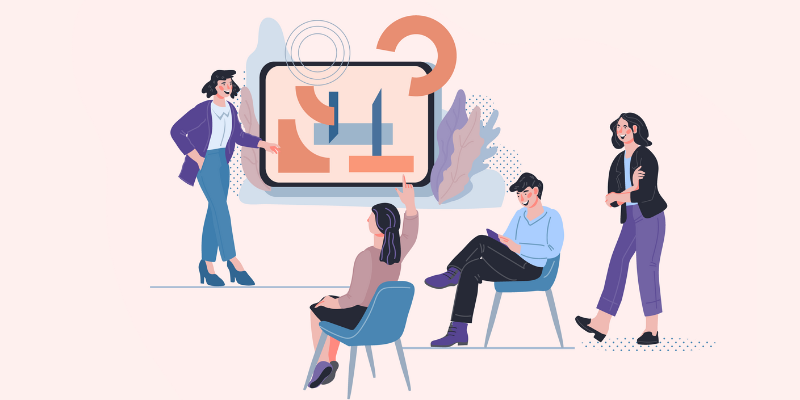By Amanda N. Wegner
Continued learning is always valuable, and even more so today, as the workforce adapts to new technologies, processes and preferences. It’s also empowering.
“Education empowers women by providing them with knowledge and skills to make informed decisions about their lives, health, finances and overall wellbeing,” says Tess Ferzoco, Edgewood College’s vice president for enroll- ment management. “This can open doors and give them a competitive advantage to a wider range of career opportu- nities and advancement in those roles, as they’re equipped with specialized skills and expertise. In a rapidly changing world, education provides women the tools to adapt, learn new skills and remain relevant in a dynamic and evolving job market.”
Adults are increasingly recognizing the value of continuing education — about 40% of people enrolled in U.S. higher education programs are adults 25 and older. If you’re thinking about joining these ranks, here are three benefits to consider.
LEARN MORE, EARN MORE
Higher levels of education often lead to higher incomes. According to the Bureau of Labor Statistics, the average median weekly income for someone with a bachelor’s degree was $1,432, and those with master’s degrees earned an additional $230 per week. Earnings for a professional degree or Ph.D. jump to $2,080 per week.
ADVANCE YOUR CAREER
Advanced degrees and specialized skills can not only lead to better-paying job opportunities, but also career advancement, says Ferzoco. And for some careers such as healthcare, says Renee Herzing, president of Herzing University, which specializes in this field, advanced educa- tion is necessary to advance.
As a UW-Whitewater employee, Katie Kuznacic knows firsthand how education can impact lives. Still, she didn’t consider pursuing a graduate degree until someone told her supervisor they should encourage her to get her MBA. And her MBA helped her reach new highs in her career — she was promoted while working on her degree and has since earned two more promotions. Now, she’s vice chancellor for university relations and UW-Whitewater Foundation president.
“When I started the MBA program, I was at a place in my career where there wasn’t a clear path for progress,” says Kuznacic. “My MBA absolutely prepared me for this new role I’ve taken on, and one I never imagined for myself.”
After writing numerous recommendation letters for colleagues, Erin Way, marketing director at Baker Manufacturing, decided to start her own MBA journey.
“I wanted to move to the next level … After attaining a few professional certifications, many classes and trainings in my field, it was time for the next step and a slightly different step,” says Way, who is halfway through UW-Madison’s MBA program. “Developing knowledge about other aspects of business was something I wanted, as well as something I felt I needed to further my career.”
PURSUE A NEW FIELD OR SIDE HUSTLE
When Claire Johnson, a former educator, was ready to return to work after her raising children, she knew she wanted a change. So, she enrolled in Madison College’s graphic design program.
“Learning a new skill set and changing directions was incredibly intimidating and exciting at the same time, but it felt like the best way to set me on a path that was right for me,” says Johnson.
One month after her December 2022 graduation, she started a free- lance graphic design business, Claire Johnson Design.
PULL OUT THE CHAI
There are many other reasons to pursue additional education — it can build your network, help you gain confidence, expose you to new fields and opportunities, and much more. If you’re considering continuing educa- tion, Herzing asks, what’s the delay?
“People always have more in them than they think they do. And women classically doubt themselves, but you have to take the chair, pull it out and sit yourself down. Women hesitate — if you wait to feel ready — it’s too late. Believe in yourself and go for it.”




